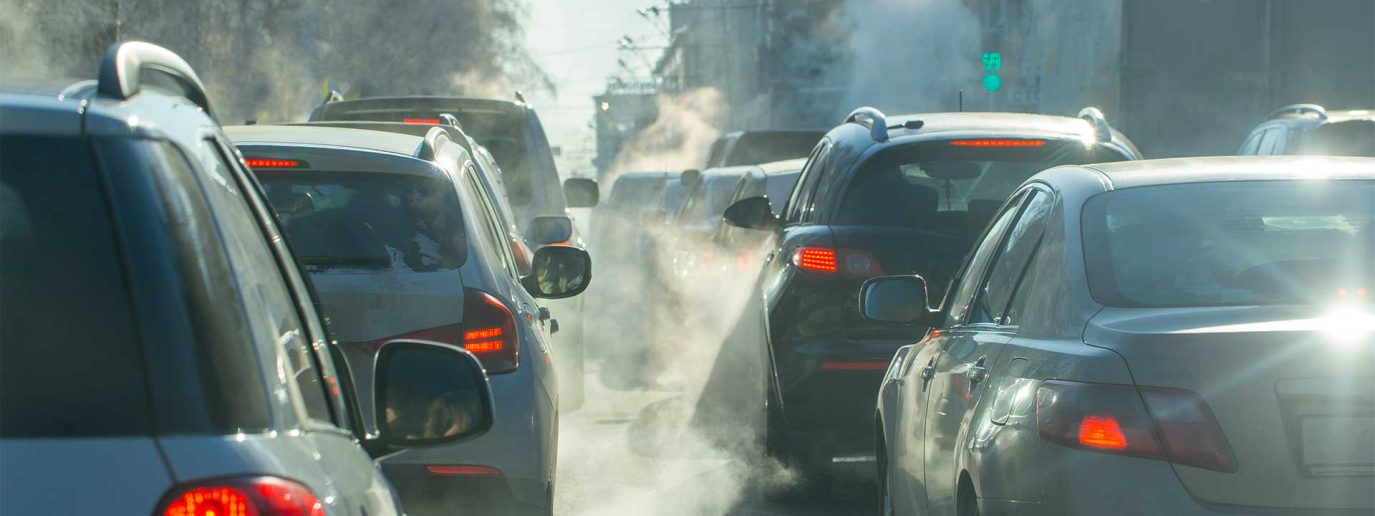
What effect does air pollution have on brain health?
15 June 2023

We know that air pollution has a detrimental effect on the health of our lungs, but what about our brains?
Air pollution is responsible for about 6.7 million deaths every year across the world and has been linked to numerous health conditions, including heart disease, lung disease and cancer. Now, emerging research is also pointing towards air pollution increasing our risk of mental health problems and even brain conditions such as Alzheimer’s disease.
The global figures on air pollution levels are startling, with 99% of the world’s population living in areas where air pollution exceeds the recommended levels set by the World Health Organization. This means that most of us are not breathing the clean air we may think we are. With this in mind, we should consider the effect that air pollution has on the brain and start to see it as a risk to our overall health.
The global figures on air pollution levels are startling, with 99% of the world’s population living in areas where air pollution exceeds recommended levels.
A world where our minds are polluted
Exposure to air pollution is not something we can control as individuals. For many of us, it is just an intrinsic aspect of where we live, work and socialise. But would you think more carefully about where you spend your time if you were fully aware of the effects of air pollution on your brain?
Air pollution is known to directly interact with our brain cells in the short term, altering the way they communicate with each other, particularly in the regions that control our emotions. This could partly explain why some people who are exposed to high levels of air pollution experience anxiety and depression.
However, research is now showing that air pollution also has long-term effects on the brain, with experts labelling it as one of the 12 modifiable risk factors for dementia. It is thought that air pollution causes inflammation in the brain, which leads to a cascade of events that include a build-up of the harmful protein linked to the diseases responsible for dementia. The main culprits behind this increased risk are traffic exhaust fumes, residential wood burning and high levels of nitrogen dioxide, which can be attributed to industrial emissions, gardening equipment, power plants, and construction and exhaust fumes.
Fighting back against air pollution
We don’t have to just sit back and resign ourselves to the fact that air pollution is part of our everyday lives; its impact on our bodies does not need to be a foregone conclusion.
There are measures we can adopt as individuals to try to reduce air pollution levels in our local areas, such as using public transport where possible, avoiding the use of wood and coal burning in the home, servicing any vehicles regularly and checking tyres frequently.
We can also take steps to avoid exposing ourselves to high levels of air pollution by minimising the time we spend in areas with high levels of traffic or other forms of pollutants and keeping the air at home clean with filter systems.

Air pollution has long-term effects on the brain, with experts labelling it as one of the 12 modifiable risk factors for dementia.
What can be done?
The upside of air pollution being a shared global problem is that there are plenty of inspiring examples from across the world of ways to tackle the issue. These include the following:
- In a bid to discourage vehicle use to help clean up London’s air, the city’s Ultra Low Emission Zone (ULEZ) will be expanding across all London Boroughs from August 2023. The most polluting vehicles will have to pay a daily charge to drive in these zones.
- Also in the UK, Edinburgh has introduced a pedestrianised city centre, with car-free streets and improved public transport.
- In Barcelona, Spain, air pollution has been cut through the introduction of car-free streets (‘superblocks’), and there are plans to expand green spaces, which may also improve the mental health of those living in the city.
- France’s capital is reducing its carbon footprint through the Paris Climate Action Plan, which comprises more than 500 actions, including becoming carbon-neutral and using 100% renewable energy. There are also plans to ban diesel vehicles, with the aim of achieving 100% ‘clean vehicle’ use by 2030.
- The Netherlands is taking a number of approaches to tackling air quality. These include creating low-emission zones for particularly polluting vehicles, ensuring that all new buses are zero-emission by 2025 and lowering parking fees for less-polluting vehicles.
- In Milan, Italy, there are plans to convert the entire public transport network to electric by 2030.
- In Bogotá, Colombia, the plans to tackle pollution include upgrading the cycle network and promoting the implementation of green roofs and vertical gardens in public spaces and private buildings.
- In Beijing, China, the ‘Green Traveler Platform’ has been introduced. This platform, which connects to smart devices, aims to track users’ emission-reducing behaviours, rewarding them with credits (which can be redeemed for cash) if they lower their impact on the environment.
So, if you are reading this as a regional, national or international decision-maker, what steps will you take to reduce air pollution to benefit the lives of millions of people?


